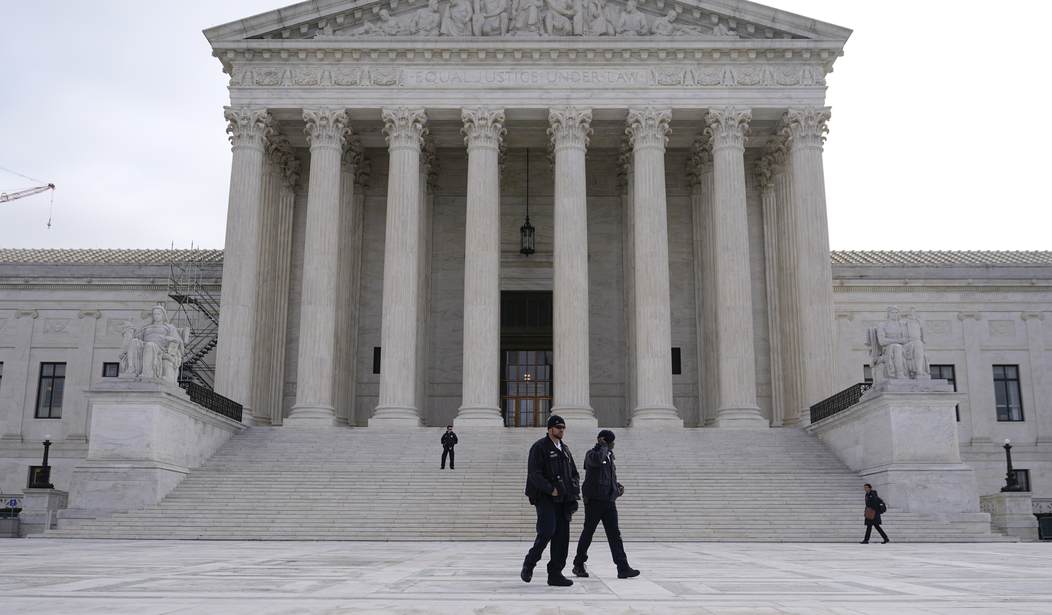How much power should the federal government have? Or, as Elizabeth Nolan Brown asks, “Is everything not forbidden then permissible for federal agencies?”
It’s a question as old as the republic, and in the last 75 years, it’s been decided in favor of government power.
Nolan Brown poses the real-world question this way: “Does statutory silence — that is, nothing in a law saying yay or nay — on powers narrowly granted elsewhere mean that a federal agency has the authority to use those powers broadly? Or must explicit authority to act be granted by Congress?”
The case being considered is Loper Bright Enterprises v. Raimondo. It’s one of those cases that deal with an obscure point in the law with the potential for huge consequences.
“The idea that agencies should be allowed to resolve ambiguities in statutes that they enforce has been a central feature of modern administrative law,” said Steve Vladeck, CNN Supreme Court analyst and professor at the University of Texas School of Law.
“If it’s up to courts rather than agencies to resolve ambiguities even in statutes delegating highly technical authority to the executive branch, that will give courts more power — and the executive branch less — on everything from environmental regulation to immigration to public health to meat inspections to telecommunications policy,” Vladeck said.
The case involves placing government monitors on board small fishing vessels. The vessels only sleep five or six passengers, and the government is telling small boat owners that they not only have to carry a monitor but must pay his salary as well.
The case is being argued on behalf of the boat owners by former Solicitor General Paul Clement.
Clement argued that the agency exceeded its authority and needed direct and clear congressional authorization to make the demand. “In a country that values limited government and the separation of powers, such an extraordinary power should require the clearest of congressional grants,” he said.
A federal appeals court deferred to the agency.
Solicitor General Elizabeth Prelogar told the justices that the agency was acting within the scope of its authority under the Magnuson-Stevens Fishery Conservation and Management Act and said the fishermen are not responsible for all the costs. The regulation was put in place to combat overfishing of the fisheries off the coasts of the US.
The case has taken on huge implications because in deciding the case, SCOTUS will have to look at the 1984 case setting “a precedent of extreme deference to federal agencies in cases concerning the limits of their statutory authority,” according to Nolan Brown.
Chevron v. Natural Resources Defense Council set a precedent of giving extreme deference to the agencies in cases concerning the limits of their statutory authority.
The Chevron precedent “has been extensively used by the U.S. government in arguing environmental, financial and consumer protection cases,” notes Robert Barnes at The Washington Post.
It’s frequently cited by the government to justify regulations when the authority to pass said regulations is being challenged.
In the current case, the group challenging the NMFS rule is a coalition of New Jersey fishing firms. Their lawyer (and former solicitor general) Paul D. Clement told the Post that the Supreme Court’s decision could not only “deliver justice to these fishermen but also … reconsider a doctrine that has enabled the widespread expansion of unchecked executive authority.”
“Courts deferring routinely to regulators’ interpretation of the law encourages them to aggregate power to themselves while depriving harmed parties of effective judicial remedies,” commented Iain Murray, a senior fellow at the Competitive Enterprise Institute. “Natural justice and due process require a judiciary that is more involved in determining what the law says. Chevron deference should be overturned as a matter of regulatory hygiene.”
The Chevron decision won’t be overturned entirely, but the court is likely to narrow the parameters of where it can be cited. Conservatives should see this outcome as part of a process to reform and rein in federal power and not the end of the regulatory state as some might have hoped.










Join the conversation as a VIP Member